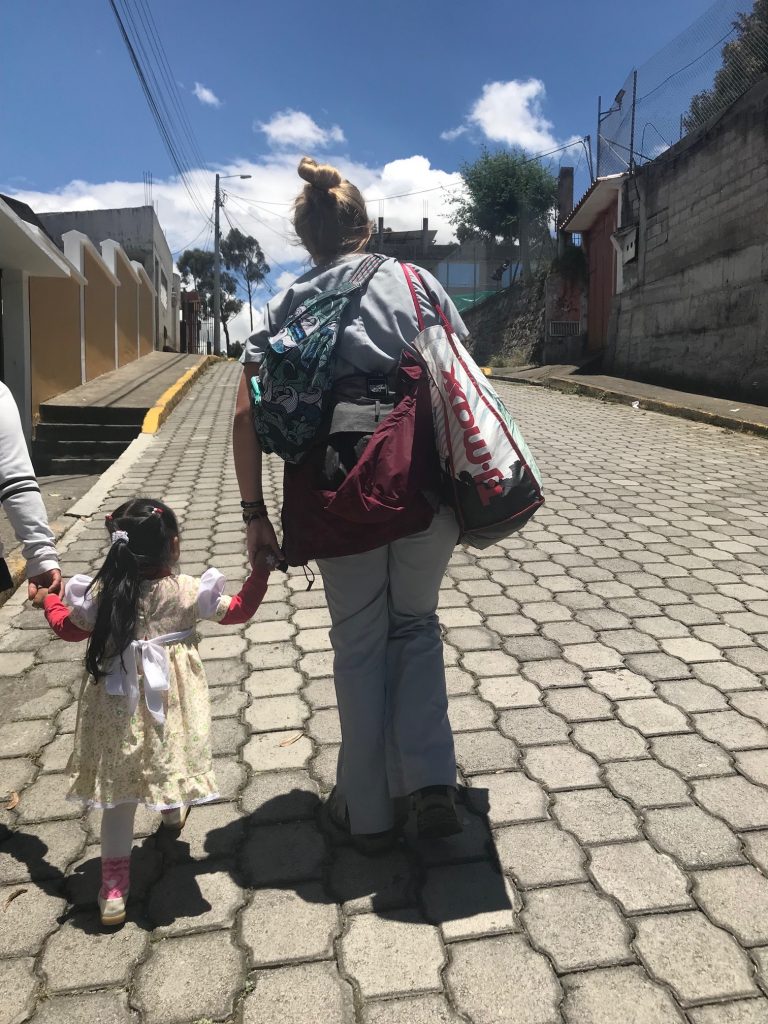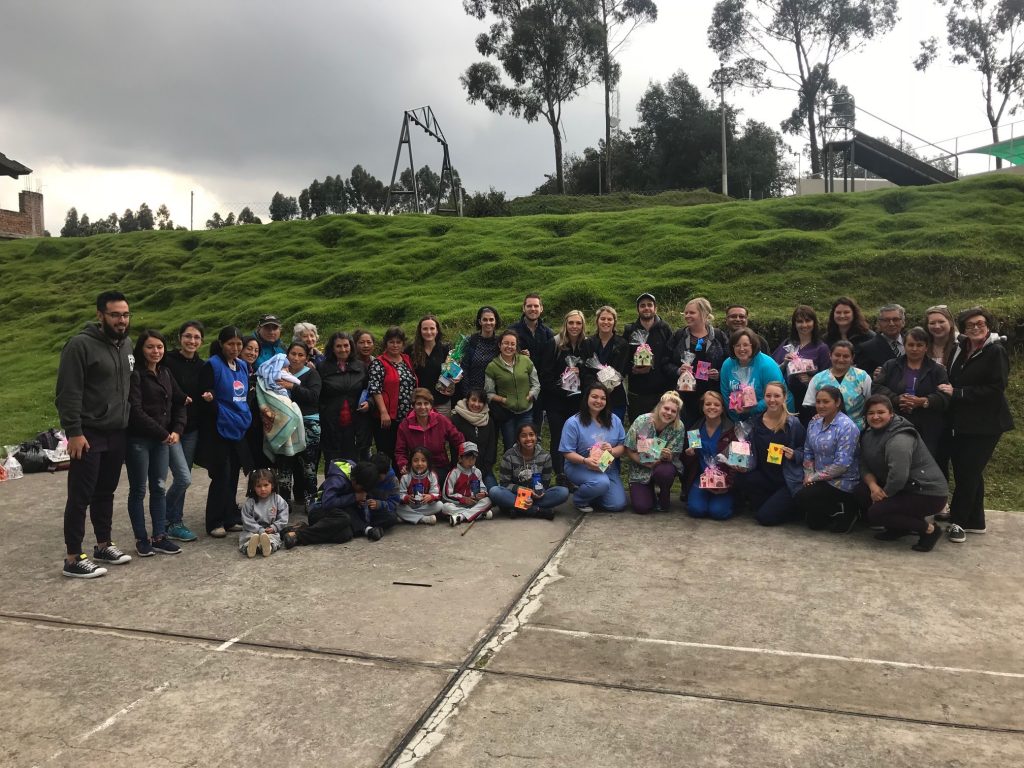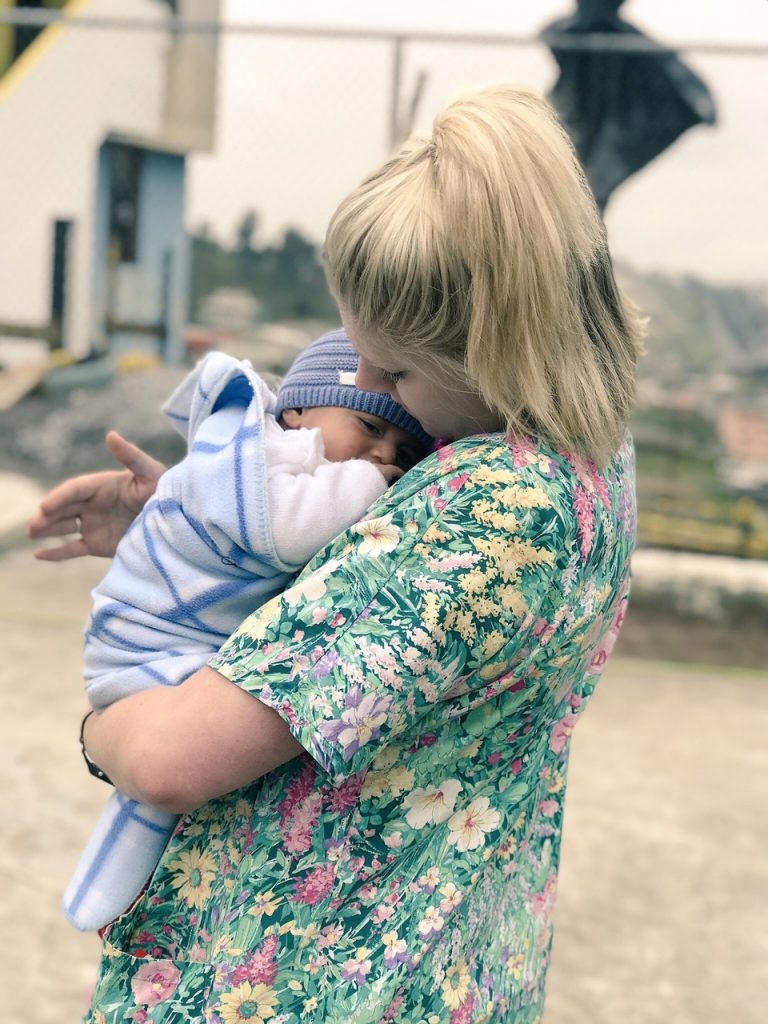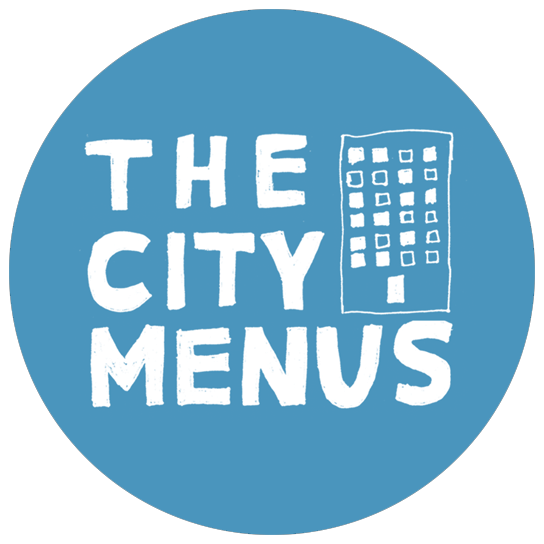
Sometimes you don’t even have to speak the same language to make an impact.
Just ask University of West Georgia College of Education (COE) graduate students Jenna Mercer, Kela Oberlah and Taylor Underwood, who traveled to Ecuador during spring break to participate in a unique study abroad program with the Department of Communications Sciences and Professional Counseling.
These speech-language students, combined with students in professional counseling under the leadership of Dr. Julie Whisenhunt, participated in a 10-day experience.
Held in conjunction with Servants in Faith and Technology (SIFAT), a nonprofit organization that aims to help underdeveloped areas, UWG has the only speech pathology program in Georgia that travels to Ecuador.
A total of 10 students and four faculty members traveled to Ecuador during UWG’s spring break, representing both the professional counseling and speech-language pathology programs in the COE.
“I wanted an experience to set apart my college career and dive more in-depth into it,” Underwood began. “I also wanted to see our profession through a different lens.”
For the speech-language focus of the program, clinic hours consisted of hearing screenings, language sessions and home visits. Underwood said it was a stark difference to what they normally experience in COE’s Comprehensive Community Clinic (CCC), an educational training facility for undergraduate and graduate students to apply the skills and knowledge they gain during their academic studies in a supervised environment.
“With the CCC, we have a whole week to plan the sessions,” she said. “We know exactly what we’re dealing with because we have their diagnoses written down from previous clients.”

In Ecuador the experience is much different — they saw 30 kids a day who spoke another language and had no medical records to assist in the diagnosis and treatment. But, the trio soon discovered they could learn a lot about people just by observation — especially children.
“We tried to take anything we could and make it fun for them,” Mercer described. “We had magnetic plastic letters that we would put on the ground to see what they’d do with them, which was really indicative to see if they were aware of them.
“Even if we weren’t playing with the children, we could just observe,” she continued. “Like eye contact. I was surprised with how much information you can get by talking to a baby and looking to see if he or she looked back.”
Underwood also encountered a 14-year-old high school student who was referred to her by counselors for speech issues — he was being bullied because he couldn’t enunciate the letter “r.” She started doing therapy with floss, showing him how to shift his tongue to get the correct sound.
“The moment he got it, his face lit up,” she said, beaming. “By teaching him the techniques and letting him know if he works on it every day his impediment could completely go away, it would solve two problems. Speech isn’t just speech. It is deep-rooted in emotion and confidence.”
The trio’s time in Ecuador also provided them with validation and a sense of accomplishment.

“We learned by putting our skills into application that we knew a lot more than we thought,” Oberlah said. “You have different assessments and need to figure out which ones to give. You find that out by talking to the parents and playing with the kids. It was helpful in solidifying that you know what you’re doing.”
Dr. Lama Farran, associate professor and program coordinator for the speech-language pathology program at UWG, accompanied the students on the trip. She believes study abroad activities offer students a new perspective on communication disorders.
“Our program operates from a developmental perspective, and everything is based on typical development,” she said. “Once you go on a study abroad trip like this — in underserved, very poor communities — you see that what is essential and necessary to sustain basic needs is different.”
In the end, Mercer, Oberlah and Underwood realized they not only gave but also received.
“You go to communities that need you, and no matter what you do, it contributes,” Underwood concluded. “If you visit Ecuador, there’s a saying about how your blessings will multiply. They look you straight in the eye. It was almost haunting, but in a good way. I still remember the feeling it would give you. We all need to take enough time to look a stranger in the eye and thank them.”
###
UWG serves more than 13,500 students from across Georgia, 37 other states and 72 countries. Perennially ranked by U.S. News and World Report as a top national university, West Georgia offers 88 fields of study, including business, nursing, education, STEM, social sciences and the arts. It generates a regional economic impact of nearly $520 million and provides a safe, quality and affordable college experience that transforms lives.

